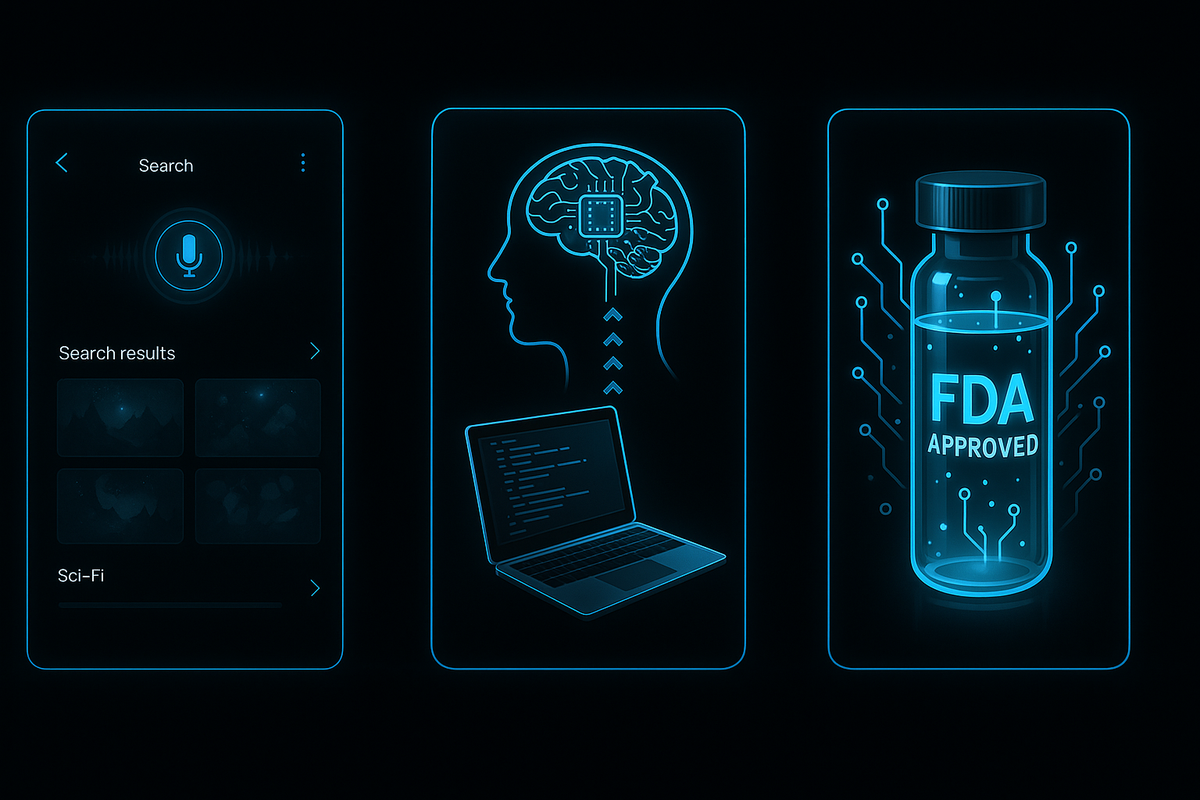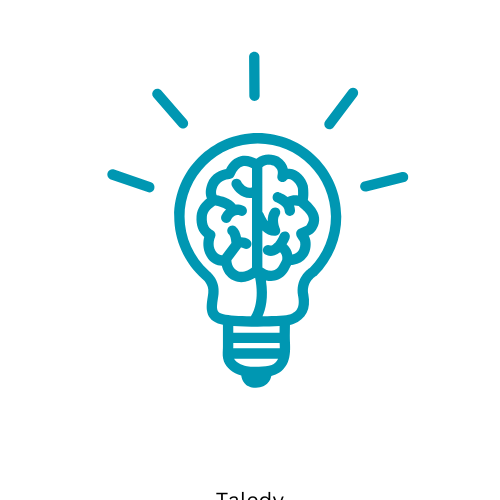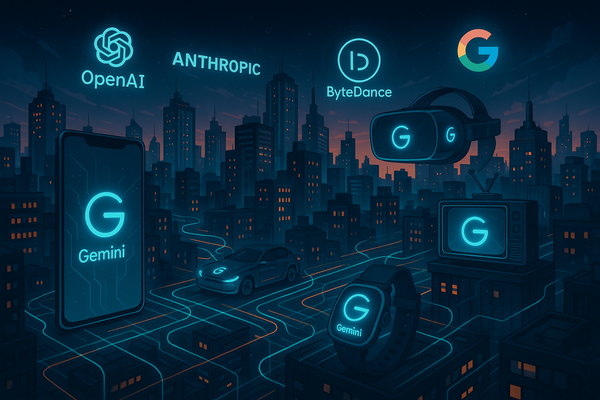AI Picks Your Next Binge, Approves Drugs, and Controls a Mind

What if AI selected your next Netflix binge, streamlined FDA drug approvals, or whispered your friend's name discreetly through your glasses? That future isn't coming; it's already here.
Welcome back to Taledy AI, the weekly guide to breakthroughs, tools, and conversations defining the future of artificial intelligence.
📰 In Today's Edition:
💳 Stripe unites AI and stablecoin innovations
🎬 Netflix integrates conversational search powered by ChatGPT
🧪 OpenAI and FDA explore AI-powered drug reviews⚙️ Mistral AI's "Medium 3" delivers Claude-level performance at a fraction of the cost🕶 Meta introduces AI smart glasses to identify your friends discreetly🎨 AI-driven animation transforms the landscape with "Mars & Siv"🧠 Neuralink showcases groundbreaking AI-driven mind control technology
The Latest Breakthroughs:
💳 Stripe Innovates with AI & Stablecoins
Stripe just launched the world's first payment-specific AI model and expanded stablecoin financial accounts to users in 101 countries.
🤖 The AI model is designed specifically for financial transactions, helping detect fraud, optimize payments, and streamline operations in real time.
🌍 The stablecoin rollout now supports global users, enabling faster, lower-cost transfers across borders with USDC.
Why it matters: Stripe is combining AI and crypto infrastructure to redefine digital financial systems. This positions them not just as a payments processor but as a core layer in the future of programmable money.
🎬 Netflix Teams Up with OpenAI's ChatGPT
Netflix just rolled out a new AI-powered conversational search built in collaboration with OpenAI.
🎬 You can now describe what you're in the mood for, and Netflix will instantly surface spot-on recommendations.
🗣️ Want something “funny but not too long” or “thrillers without too much gore”? Just say it: no more endless scrolling.
Why it matters: This shifts Netflix from a passive library into an active, AI-driven entertainment assistant, making discovery as simple as conversation.
🔬 OpenAI Brings AI to FDA Drug Approval
OpenAI is partnering with the FDA to launch cderGPT, an AI assistant built to speed up drug reviews and approvals.
💊 cderGPT is designed to analyze submissions, flag issues, and assist with regulatory evaluations in real time.
⚖️ While the system could streamline decision-making, experts are raising concerns around accuracy, bias, and regulatory transparency.
Why it matters: If successful, this marks a major shift in how life-saving treatments reach the public, but it also raises urgent questions about AI’s role in high-stakes government workflows.
🚀 Mistral AI Launches Highly Efficient "Medium 3" AI Model
Mistral AI just dropped Medium 3, a frontier-class model built for serious performance and serious savings.
⚙️ It hits over 90% of Claude 3.7 Sonnet’s performance while running on just 4 GPUs.
💸 It’s also 8x cheaper than most competitors without compromising on quality.
🏢 Designed with simplicity in mind, it integrates smoothly with enterprise tools, making no-code AI adoption easy and scalable.
Why it matters: Mistral is proving that frontier performance doesn’t have to come with frontier costs. This model makes powerful AI accessible to lean startups and big enterprises alike.
🕶️ Meta Reveals AI-Enabled Smart Glasses
Meta just unveiled AI-powered smart glasses that can discreetly recognize faces and even whisper your friends’ names to you.
🕶️ Powered by always-on AI, the glasses identify people in real time to help you navigate social situations without missing a beat.
🔐 But with facial recognition and audio prompts built in, privacy experts are raising red flags around consent, surveillance, and data protection.
Why it matters: This could be the future of seamless social interaction or a new front in the battle over biometric privacy.
🔐 Cybersecurity Experts Warn: AI Agents Require Caution
Top cybersecurity experts now warn: AI agents should have identity controls as strict as human employees.
🔐 Without clear guardrails, these agents can access sensitive systems, act autonomously, and potentially become insider threats.
🧠 As AI takes on more operational responsibility, it’s no longer just a tool; it’s a trusted actor in the system.
Why it matters: Treating AI like a junior employee isn't just smart; it’s essential. Security policies must evolve before the risks outpace our defenses.
🎞️ AI-Powered Animated Short "Mars & Siv" Hints at the Future of Independent Animation
Mars & Siv is a neon-soaked, AI-generated animated short about a robot and an alien navigating life in a grimy motel.
🎞️ Its quirky, noir-inspired storytelling and surreal visuals challenge the limits of what independent creators can accomplish.
🧠 Behind the scenes, AI tools enabled the entire production, unlocking complex styles that used to be out of reach for small teams.
Why it matters: This isn’t just a short film; it’s proof that AI is rewriting the rules of animation, giving indie voices the power to rival studio-level storytelling.
🧠 Neuralink Demonstrates Breakthrough AI-Powered Mind Control Technology
Neuralink just hit a major milestone, helping an ALS patient speak and control a laptop using only brain signals.
🧠 The patient used a Neuralink implant to move a cursor, type, and communicate, all through thought alone.
💬 It’s a powerful showcase of how AI, brain-computer interfaces, and neuroscience are coming together to restore lost abilities.
Why it matters: This isn’t sci-fi anymore. Neuralink’s demo signals a future where thought-driven tech could transform how we treat paralysis and neurodegenerative disease.
🚧 Research Highlights: Why Short Prompts Increase AI Inaccuracy
New research shows that asking AI to be "short and sweet" might backfire.
🤖 Concise prompts were found to increase hallucinations, where AI gives confident, but wrong, answers.
🧠 Longer, more detailed prompts tend to produce more accurate and reliable responses.
Why it matters: In the rush for speed, we may be sacrificing truth. Prompting isn’t just convenience; it’s a science that shapes how AI thinks.
🪟 Microsoft Bans DeepSeek
Microsoft just confirmed it bans employees from using the DeepSeek app, citing serious data security and propaganda concerns.
🔒 Microsoft president Brad Smith told the Senate that DeepSeek’s app stores user data in China, where it's subject to government surveillance.
🧠 Smith also warned that DeepSeek’s responses may be influenced by Chinese propaganda, making it risky for internal use.
Why it matters: This isn’t just about corporate policy; it’s a broader signal about trust, national security, and the invisible lines being drawn in the global AI race.
🦿Anthropic Launches Web Search
Anthropic just launched a web search API for Claude, letting developers build apps that pull live info from across the internet.
🌐 When enabled, Claude decides when fresh data is needed, then searches the web, analyzes results, and delivers answers with citations.
🧠 It can refine queries, run multiple searches, and even limit results to approved domains. Developers control the behavior; pricing starts at $10 per 1,000 searches.
Why it matters: Claude just got a major upgrade, bridging static AI knowledge with real-time web access. This feature gives developers a powerful new way to build smarter, always-updated AI tools.
🎇 Figma Takes on Canva
Figma just launched a wave of AI-powered tools to take on Canva, Adobe, Wix, and more.
🌐 Figma Sites lets designers go from prototype to live website, complete with transitions, scroll effects, and even built-in blog publishing.
🧪 Figma Make helps teams rapidly prototype AI-generated web apps using prompts; they are editable by devs or no-code collaborators.
🎨 Plus: Figma Draw for advanced vector editing and Figma Buzz for marketers to generate branded assets at scale.
Why it matters: Figma is evolving from a design tool into a full creative platform, blending design, development, content, and AI into one powerful ecosystem.
🏪 Amazon Building New AI Coding Tool
Amazon is secretly building a new AI coding tool called Kiro, and it could be their biggest move yet in the developer tools race.
💻 Kiro generates code in near real time using prompts and existing data, with support for both web and desktop apps.
🧠 It also creates design docs, flags issues, and connects with third-party AI agents, plus it’s multimodal.
Why it matters: With tools like Cursor and Windsurf grabbing headlines, Amazon is making it clear, they want a seat at the AI coding table, and Kiro might just be their answer to Copilot and beyond.
🤖 OpenAI Wants to Pay Less to Microsoft
OpenAI plans to cut the revenue share it pays Microsoft in half by 2030, according to internal financials cited by The Information.
💸 Right now, OpenAI shares 20% of its top-line revenue with Microsoft, but it expects to drop that to just 10% across all partners by decade’s end.
🏢 This comes as OpenAI pursues a new corporate structure, shifting its for-profit arm into a public benefit corporation (PBC), still controlled by its nonprofit parent.
Why it matters: Even as Microsoft remains OpenAI’s closest partner, this signals a long-term pivot toward greater independence, lower cost-sharing, and tighter control of its business model.
Quick Industry Hits:
🚗 BMW & Alibaba Unite for Advanced In-Vehicle AI
BMW and Alibaba join forces to deliver interactive AI agents for new car models launching in 2026, providing personalized navigation, vehicle diagnostics, and recommendations in the Chinese market.
🛡️ Lockheed Martin Drives Real-Time AI-Driven Cybersecurity
Lockheed Martin integrates real-time AI threat-detection capabilities into their cybersecurity systems, reshaping defense strategies to counter digital threats effectively.
🌐 OpenAI Launches International "Stargate" AI Initiative
OpenAI's $500 billion Stargate project fosters democratic-aligned AI infrastructure across ten nations, positioning the U.S. as a leader in global AI technology and ethics.
📸 Ideogram 3.0 Sets Benchmark for AI Image Generation
Ideogram version 3.0 outperforms competitors by providing best-in-class text rendering, graphics capabilities, and photorealism, emerging ahead of Imagen 3 and Recraft V3 in testing.
📱 Alibaba Unveils Omni-7B: Multimodal AI for Smartphones
Alibaba introduces Qwen2.5-Omni-7B, capable of simultaneously processing text, images, audio, and video content, optimized for efficient operation on smartphones, making multimodal AI practical for everyday use.
🤖 Amazon's Vulcan Robots Revolutionize Warehouse Ops
Amazon deploys AI-driven Vulcan robots with advanced tactile sensitivity, enabling gentle, efficient handling and improving warehouse optimization.
🧠 Phrase of the Week: Hallucination
When an AI “hallucinates,” it’s confidently making stuff up.
Imagine asking your smart robot friend a question, and it answers quickly… but the answer sounds real even though it’s totally wrong.
That’s a hallucination.
It doesn’t mean the AI is broken; it just guessed, and guessed badly.
So next time you hear an AI say something strange, double-check, it might just be hallucinating.
If you are into content creation, here are two free tools for you to check out:
🎥 Taledy has a suite of tools for creating videos, transcribing, creating shorts, and much more. Check it out!
🤖 Vidyne provides a hands-off way to manage your YouTube channel by automatically creating videos and uploading them to your channel. Try it out!
The Taledy AI Team





